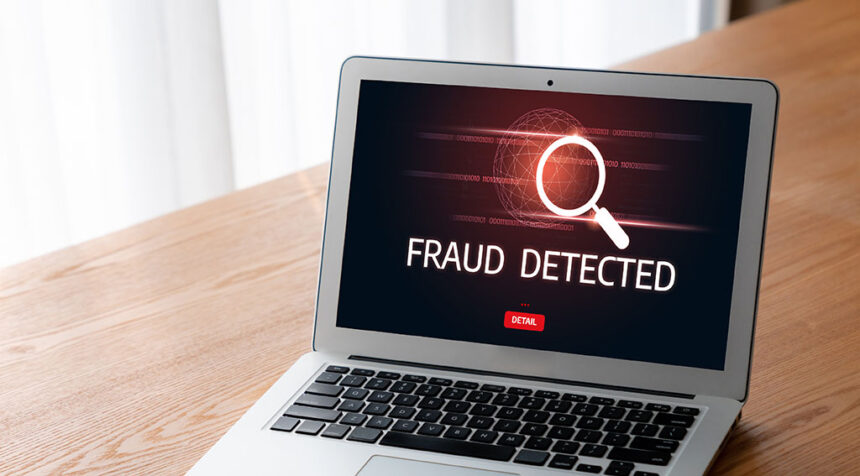Digital identity brings about a major change in how we interact with the digital world, leading to improved user experience and security.
Great strides have been made as we have evolved from simply using passwords and usernames to more advanced security markers such as biometric authentication and security markers using AI technology.
In the Asia-Pacific region, governments are at different stages of maturity when it comes to digital identity.
Some countries have set ambitious targets, hoping to boost digital connectivity and make life easier overall for their citizens.
The Current State of Digital Identity in Southeast Asia
The clear leader in Southeast Asia is, of course, Singapore. Launched Sing Pass 2003
The Singpass app has gradually added additional features over the years to increase its relevance.
Singpass’ current features include: Commonly used government digital services such as checking your CPF balance, applying for an HDB flat, and carrying out online banking transactions are just one tap away.
Some might also argue that this is the foundational layer that has allowed digital banking to thrive in Singapore, enabling citizens to seamlessly manage their bank accounts digitally.
Meanwhile, Malaysia is also making progress in digital identity. Prime Minister Datuk Seri Anwar Ibrahim He registered for a national digital ID in December 2023, becoming the first person in the country to do so.
Malaysia to demonstrate its commitment to financial security Bank Negara In April, it released revised requirements and guidance for the implementation of eKYC solutions for onboarding individuals into the financial sector.
In particular, digital IDs will be used by banks for eKYC and transaction authorization.
The central bank said the revised requirements and guidance aim to keep up with technological advancements to facilitate the safe and secure adoption of e-KYC solutions for both individuals and legal entities, while maintaining the integrity of the financial system.
This country Digital Minister Govind Singh Deo In July, it said discussions were underway to integrate MyDigital ID with the banking sector, Touch ‘n Go, Employees’ Pension Fund (EPF) i-Akaun and the Revenue Department.
“Prior to this, the MyDigital ID team has been working with Bank Negara, banking service providers and relevant stakeholders to strengthen and expand the use of MyDigital ID in the banking and finance sector.”
In the Philippines, Philippine Statistics Authority The government, in partnership with the Ministry of Information and Communications Technology, introduced the digital national ID in June this year, along with authentication platforms National ID eVerify and National ID Check.
As of July 2024, more than 88 million Filipinos have registered with the Philippine Identification System (PhilSys) to obtain a national ID, and a total of 52 million PhilID physical cards have been issued.
The digital national ID supports the government’s strategy outlined in the Philippine Development Plan 2023-2028, a strategic framework designed to guide the country’s development over a six-year period, with the ultimate goal of achieving inclusive growth, reducing poverty and improving the quality of life for all Filipinos.
Combating the threat of deepfakes with digital identity
But how important is digital identity, really, to a thriving digital banking ecosystem?
Most agree that digital identities are the first and most important step in fraud prevention, and banks need to prioritize managing these identities by implementing more robust authentication measures and, of course, monitoring them appropriately.
Frederick Ho, Vice President, APAC, said: Jumio, Global provider of automated, AI-driven identity verification Online identity verification plays a key role in the digital transformation to ensure that the person conducting a transaction is who they say they are.

He cited the Jumio 2024 Online Identity Survey, which revealed that 67% of consumers globally (78% in Singapore) are concerned about whether their banks have put in place sufficient safeguards against fraud using deepfakes.
“By deploying biometric-based verification systems and using liveness detection and other advanced technologies to thwart deepfakes, financial institutions can stay ahead of evolving threats, reduce fraud losses, and increase trust in digital banking channels.”
Ho says.
Ho said the regulatory environment was supportive in Southeast Asia, where Jumio is active in the banking and fintech sectors.
In Malaysia, he praises initiatives such as Bank Negara Malaysia’s eKYC guidelines for encouraging the adoption of these solutions.
Ho noted that the company’s clients have significantly improved their online user experience and customer conversion rates, as well as achieved compliance with AML/KYC regulatory standards.
He said Jumio’s solutions are built with compliance and security as a foundation, and the company has achieved key certifications such as ISO/IEC 27001:2013, PCI DSS and SOC2 Type 2 while regularly reviewing its security objectives, risks and controls for process improvement.
But consumers expect a quick and seamless onboarding process, and banks are feeling pressured to strike the right balance between security and customer experience, he says.
“To address these challenges, banks must integrate their technology and processes, partnering with global technology vendors like Jumio to automate compliance processes and strengthen anti-fraud measures.”
“Jumio’s eKYC solution is designed to help organizations comply with the ever-changing regulatory environment for customer identity verification and has been audited by leading global auditing firms and banks, demonstrating our compliance and reliability.”
Digital identity is a key piece of financial inclusion
Similarly, in the Philippines, where a large portion of the population is unbanked, eKYC plays a key role in enabling financial inclusion by allowing banks and fintech companies to onboard customers remotely, Ho added.
Aaron Foo, chief strategy and product officer at Philippine digital bank GoTyme, offers some insight into how digital identity has fueled the bank’s growth.
He believes the implementation of digital banking and eKYC solutions has enabled the bank to serve almost every Filipino, and has been a key driver of its monthly customer growth of 250,000.
What previously required a trip to a bank branch and 30 minutes to an hour of both the customer’s and bank staff’s time can now be completed in less than five minutes with eKYC.
“We estimate that eKYC can reduce account opening costs by 5-10 times compared to traditional bank branches.”
He said an ideal eKYC solution should be fast, low-cost and capable of conducting high-volume KYC with high accuracy.
“The importance of robust eKYC goes beyond the KYC process itself – it’s about ensuring that customers are well understood, properly served, trusted and able to receive the right financial services and advice over the long term.”
Featured Image Credit: Free Pick








